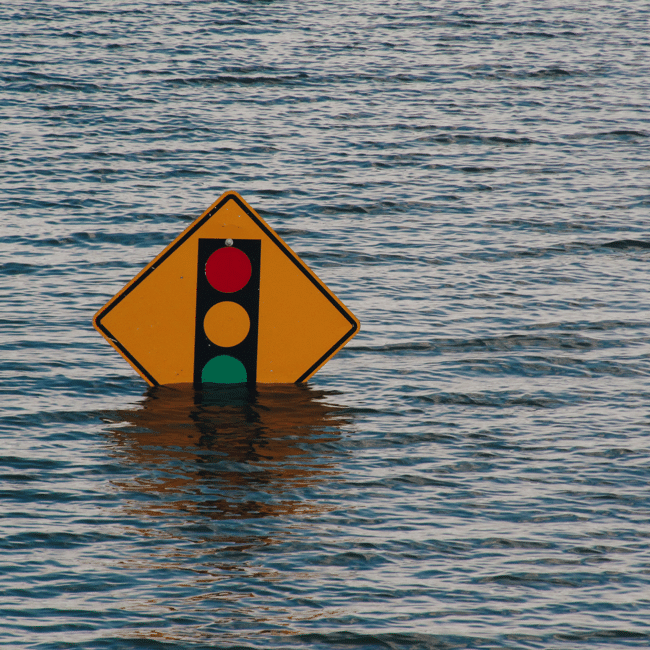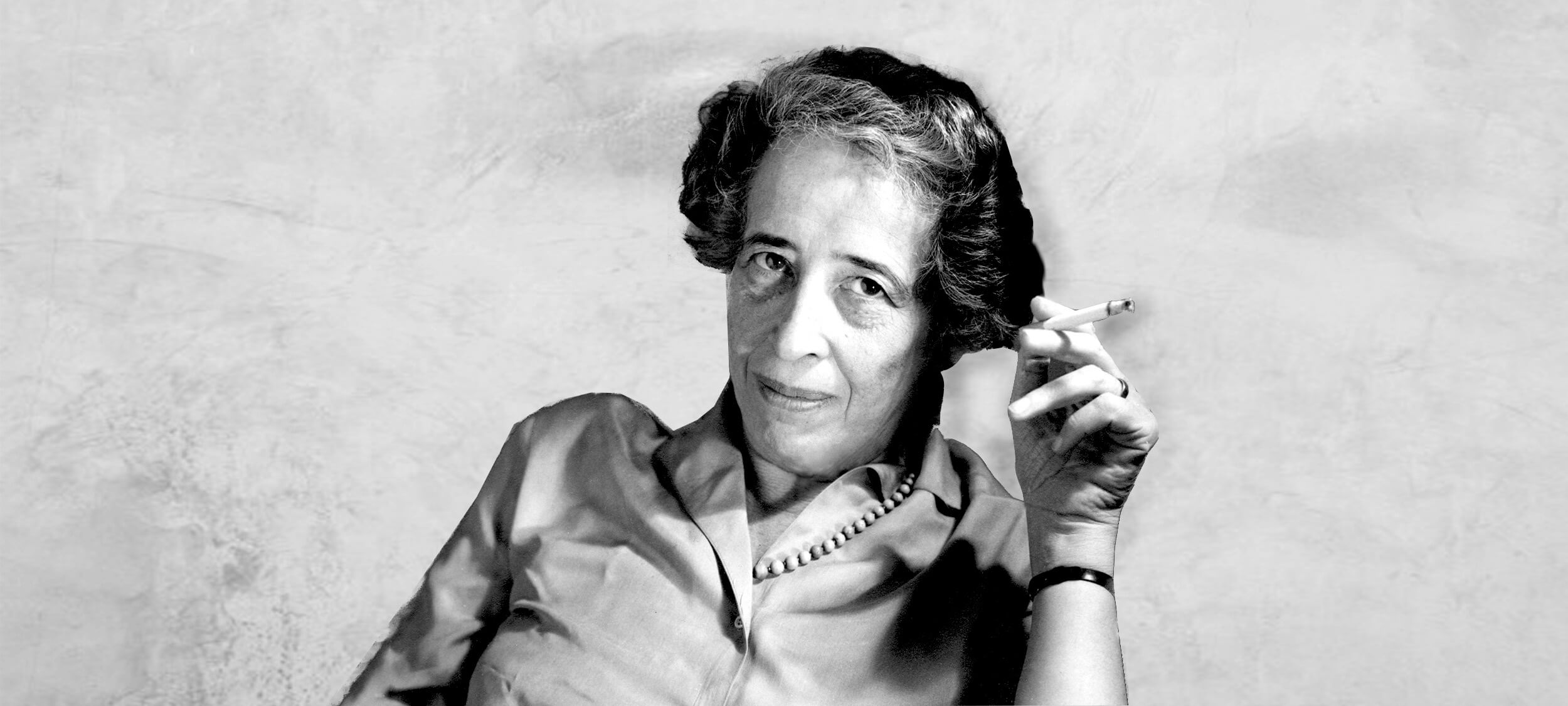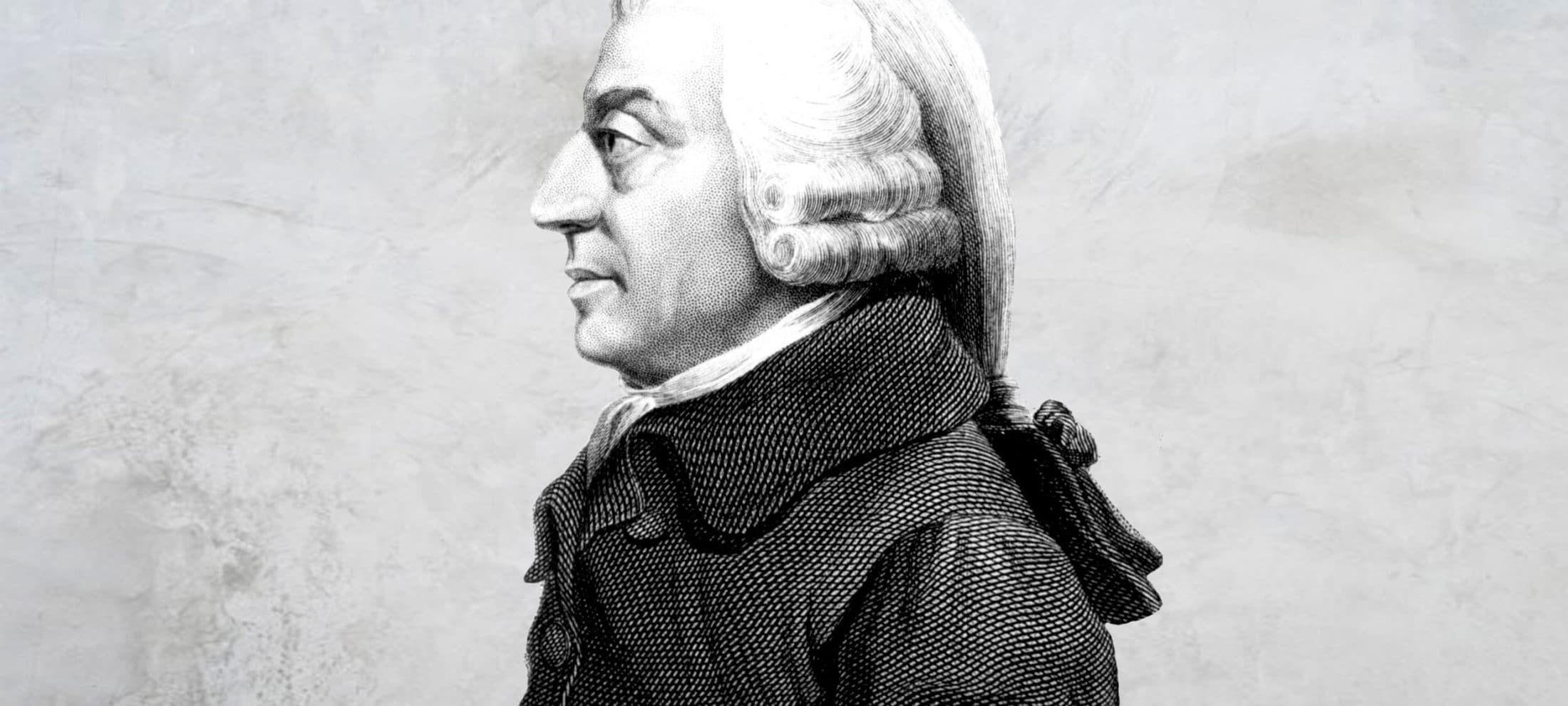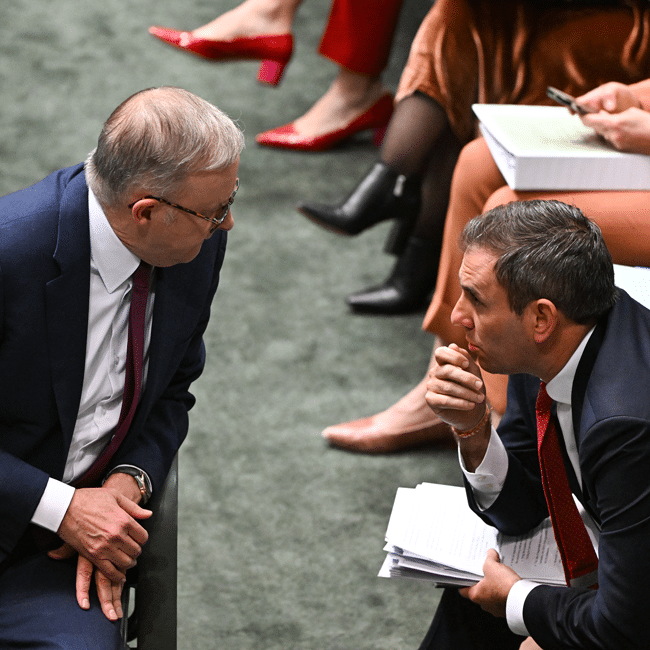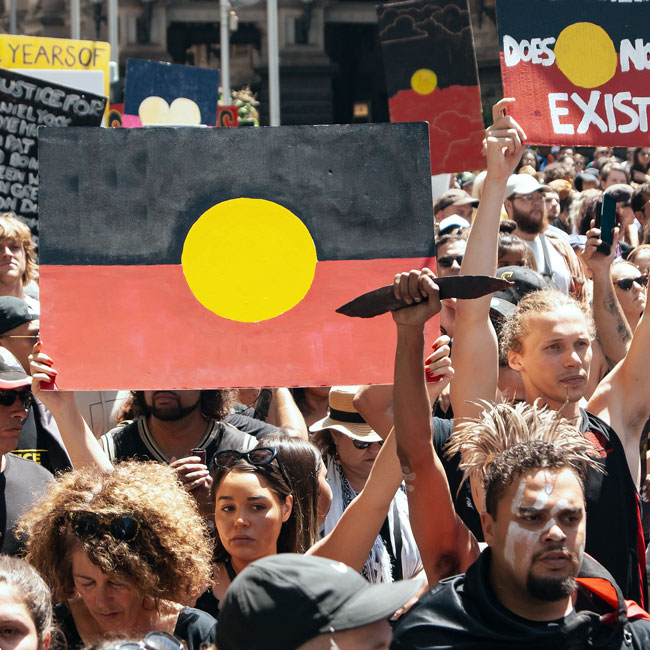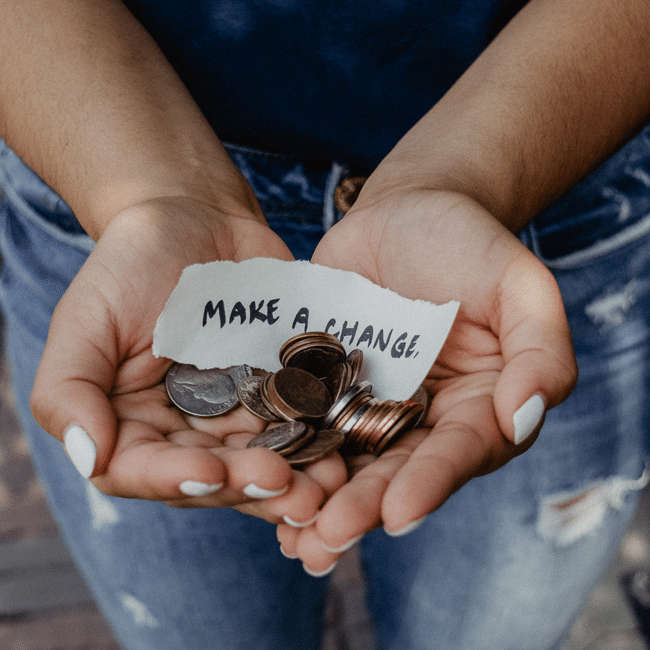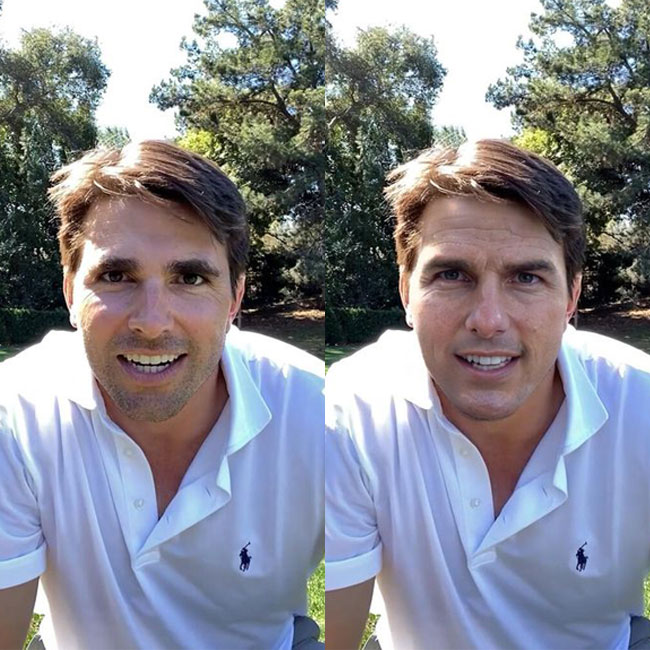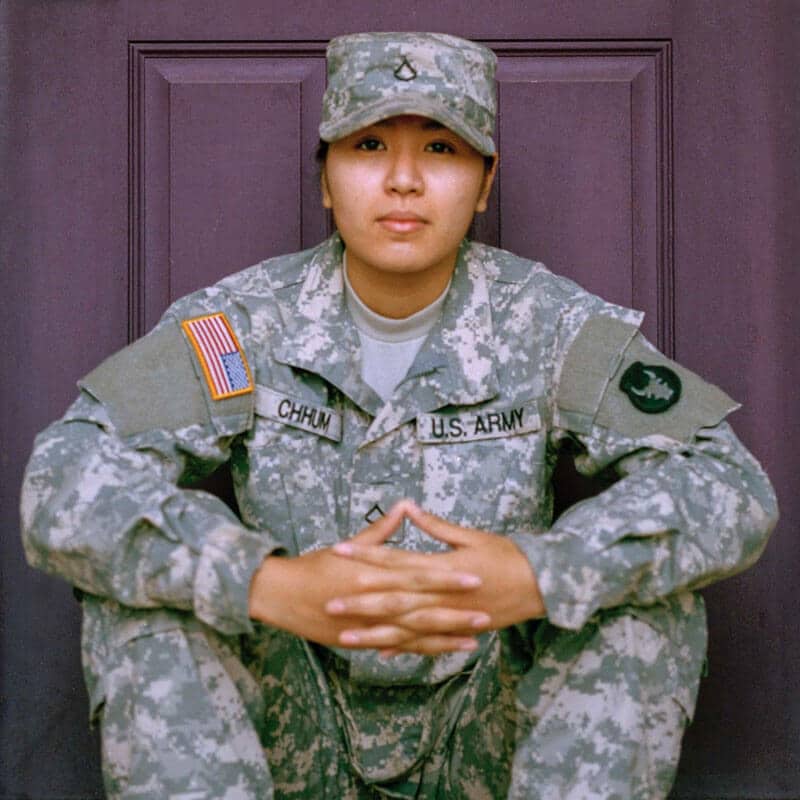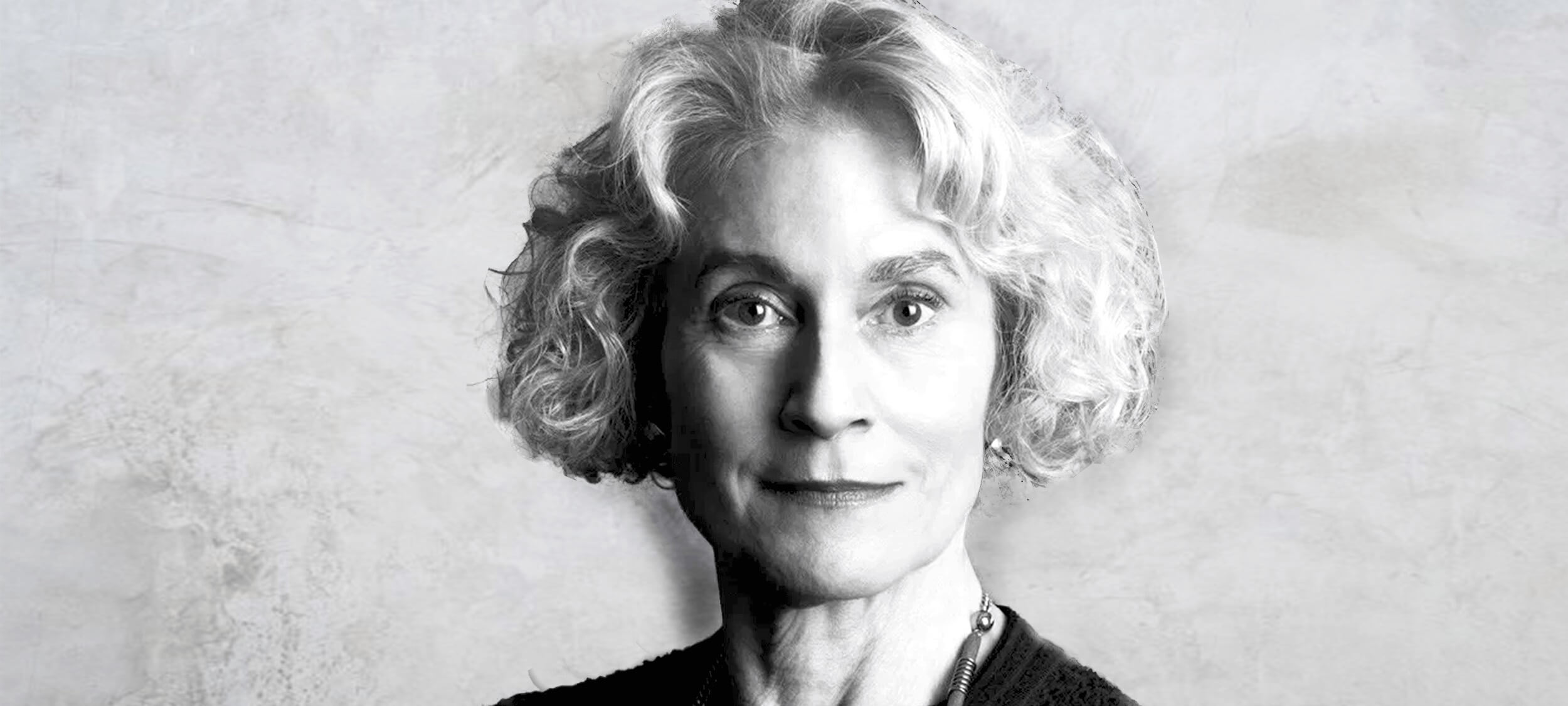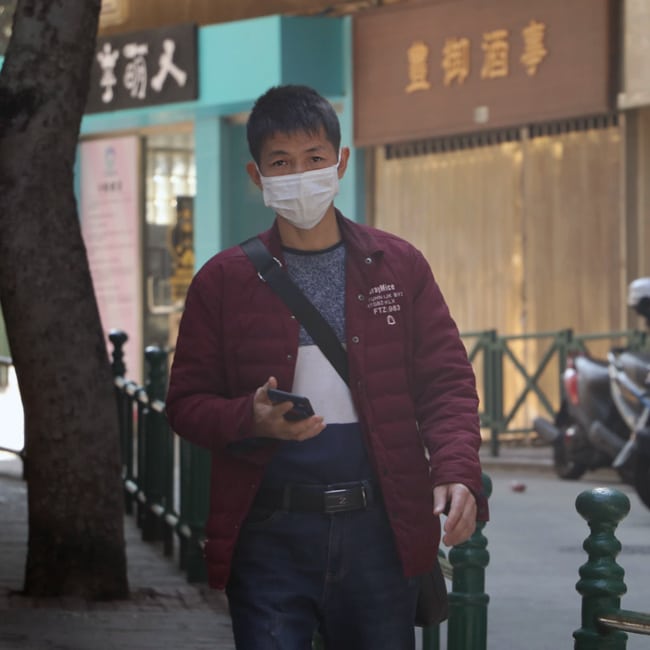Who is to blame? Moral responsibility and the case for reparations

Who is to blame? Moral responsibility and the case for reparations
Opinion + AnalysisClimate + EnvironmentPolitics + Human Rights
BY Anna Goodman 17 JAN 2023
Reparations recently made the news after the COP27, with poorer countries demanding richer countries pay for damages caused by global warming. But, are reparations the best way to achieve justice for previous harms, and what do they tell us about moral responsibility?
Throughout the 19th and 20th centuries, western countries developed and industrialised without many (or any) regulations. Coal burning factories produced new technologies, new agricultural practices led to chemical runoff and land clearing, and global trade and travel have accelerated the production of man-made greenhouse gases. Historically, developed countries have contributed to just under 80% of total carbon emissions.
As a result, devastating floods, bush fires, droughts and storms have ruinous impacts on communities and countries. Rising sea levels threaten small island nations and coastal towns alike. The countries and populations feeling the biggest impacts tend to be poorer and have fewer resources to deal with the fallout of climate related catastrophes.
Climate change is a global issue, and it’s clearly impacting poorer, less developed countries in more drastic ways than wealthier ones. Can reparations really be a solution to such a complex issue?
What are reparations?
Reparations are usually monetary (or something else that transfers wealth, like land) compensation, paid by a dominant group to an individual or a group that has been wronged or harmed. Reparations are usually viewed as one mechanism for remedying a past injustice. Given past injustices have created present-day inequalities and much of this inequality is socioeconomic, reparations are one way to make amends and “even the playing field.
The controversy surrounding reparations
Reparations become controversial when we overlay our common conceptions of moral responsibility. We typically view someone as morally responsible for something if they caused that thing to happen. For example, if you steal something from a store and are fully aware and in control of yourself, most people would view you as morally responsible for that action, and therefore deserving of the repercussions that come from stealing.
But, who is morally responsible for the global climate crisis? European countries have some of the most progressive climate change policies in the world today, but were responsible for the majority of emissions during the 19th and 20th centuries. On the other hand, China and India haven’t historically been big emitters, but today they are. It’s unclear who is more responsible for the state of the climate today. So, if we can’t find someone or some group directly morally responsible, should reparations be paid at all?
The case for reparations
There are two main reasons why I think our common notion of moral responsibility translates into a good enough argument in favour of reparations.
Firstly, we need to think about what inequality looks like in the world. Much of the inequality that we can observe is economic, and it is often the direct result of past injustices.
If we truly want to live in a just world, we are going to need to level the playing field, and money is one of the most effective ways to do that.
The question is: where should this money come from? Whether or not someone from a dominant group actively participated in or committed one of these wrongs, they likely experienced either direct or indirect benefits.
For example, industrialised countries have benefited from the use of fossil fuels, and generated their wealth through manufacturing and trade, which compounded over decades and centuries. To the extent that individuals and groups today have benefited from past injustices, then they owe some reparations to the groups that are disadvantaged because of those past injustices. Wealthy countries, therefore, that have compounded wealth that came from industrialising during a time where carbon emissions remained unchecked should pay reparations, even though none of the people alive today actively contributed to the climate emissions of the past.
Second, reparations acknowledge that the payer has some responsibility for the wrongs committed towards the payee. As former prime minister Scott Morrison said about $280 million of reparations that Aboriginal communities received in 2017, “This is a long-called-for step… to say formally not just that we’re deeply sorry for what happened, but that we will take responsibility for it”. Paying reparations acknowledges that harm occurred to a group of people because it recognises that there is lasting inequality that has occurred from that harm. In addition, the person or group paying the reparations recognises that they have benefitted from the harm or inequality, even if they didn’t directly cause it.
While reparations don’t promise to remove all inequality or solve every injustice, they are an important step for dominant groups to acknowledge and accept responsibility for harms of the past, as well as taking an important step to close present socioeconomic gaps.
Ethics in your inbox.
Get the latest inspiration, intelligence, events & more.
By signing up you agree to our privacy policy
You might be interested in…
Big thinker
Politics + Human Rights
Big Thinker: Hannah Arendt
Big thinker
Politics + Human Rights, Relationships
Big Thinker: Adam Smith
Opinion + Analysis
Business + Leadership, Politics + Human Rights
A foot in the door: The ethics of internships
Opinion + Analysis
Politics + Human Rights, Business + Leadership
Political promises and the problem of ‘dirty hands’
BY Anna Goodman
Anna is a graduate of Princeton University, majoring in philosophy. She currently works in consulting, and continues to enjoy reading and writing about philosophical ideas in her free time.
Who’s afraid of the strongman?

Who’s afraid of the strongman?
Opinion + AnalysisBusiness + LeadershipPolitics + Human Rights
BY Georgia Fagan 23 NOV 2022
Donald Trump has announced his second run for presidency in 2024. With a reputation for both passive and active violence, and a disregard for democratic integrity, the prospect of another Trump presidency is feared by many. But for others, his re-election would mark the promising return of a strong, capable leader. How do we begin to make sense of these contemporary communities which seem to either fear or revere their elected leaders? And are there ways such polarised receptions can ever be avoided?
Historian Ruth Ben-Ghiat knows just how Trump, operates. He’s following the strongman’s playbook, one that has four guiding features. Strongmen put their personalities at the front of their politics, they embrace machismo norms, relish in corruption, and do not shy away from the power of violence. We can use these insights to sniff out the strongmen lurking in systems of governance. Ben-Ghiat emphasises that we should be strongly motivated to do just this, as there is ‘too much at risk not to try’.
Cultish personalities are formed around these political leaders as they work to present themselves as ‘a man of the people’. They emphasise their standout character while simultaneously asserting themselves to be no different than the common citizen.
Their embracing of machismo, Ben-Ghiat explains, is reflected in hypermasculine behaviours, showcasing these examples with shirtless photos of both Trump and Putin. Women, they say, are ‘the enemy of the strongman’.
Corruption in the case of the strongman is of both the ‘moral and professional’ variety. We are told that the strongman commonly grants pardons which ‘free up criminals for service’, channelling those who some may take to be immoral offenders into positions of political power.
To convey their relationship to violence, Ben-Ghiat directs us to the presence of weapons in recent Republican political campaigns in the United States, telling us that these men ‘think they look strong, but it is really a sign of insecurity’. The strongman is making up for something.
Ben-Ghiat tell us that a contemporary commonality of these men is that they are often democratically elected, and that they pose considerable threats to the democratic systems in which they embed themselves.
Trump’s rallying tactics and his subsequent role in and commentary on the 2021 Capitol riot may be taken as emblematic of these strongman features. His mass appeal has been argued as being largely derived from ‘performative’ techniques that obfuscate his political goals or capacities more broadly. Trump continues to claim the democratic integrity of the United States to be under threat, asserting the actions of the Capitol rioters as warranted given the presence of electoral fraud in the country.
In these ways and others Trump seems to aptly align with Ben-Ghiat’s constructed, strongman persona. Impeachment, ongoing congressional hearings and public scrutiny evidently do little to undermine Trump’s confidence and his desire to reobtain the political power he once held.
There are mounting concerns that this phenomenon is not isolated to the United States. And that politicians globally can be seen as working to strengthen centralised systems of political power in ways which align with authoritarian leadership regimes. Could there be a risk that even the most historically democratic governments could begin to shift in comparable ways? If so, what could be done to manage that risk?
–
Pursuing political instigators of harm is a coherent goal and a strong incentive to Ben-Ghiat’s work. State leaders, even when democratically elected, are fashioned with powers that endow them the capacity to do both a world of good, and a world of harm. Many people were directly harmed by policies of the Trump administration; even more were harmed from the uncertainty his particular presence in office brought into their daily lives.
Ben-Ghiat recognises these sorts of harms and aims to call out the various features which they take as both forging and propagating them, egotistical, corruptive, and violent figureheads. When bundled together, these form the strongman, and for Ben-Ghiat the strongman should be our target.
If the goals of this work are the management of uncertainty and the desire to retain confidence in our capacity to uphold democratic structures and installed systems of justice, and we are sympathetic to these goals, we need ask what Ben-Ghiat’s approach to achieving them misses, or more poignantly, what it risks.
Bertrand Russel, not unlike Ben-Ghiat, was similarly sceptical of politicians. He remarks, “since politicians are divided into rival groups, they aim at similarly dividing the nation…”. Importantly distinct from Ben-Ghiat however, Russel’s scepticism is namely directed at the two-party political system as it stood in early 20th century Britain, and the impact this system has on the wider populations who comprise it.
Features of Ben-Ghiat’s strongman criteria are not in opposition to Russel’s characterisation of political figures more broadly. Yet Russel’s evaluations of these harm attend more heavily to the relationships that citizens, or voters, have to these politicians.
“The power of the politician, in a democracy” Russel writes, “depends upon his adopting the opinions which seem right to the average man”. For Russel, both the best and the worst of our politicians are reflections of and responsive to the ideas and sentiments of the populations they operate within.
The risk of Ben-Ghiat’s approach is that attending so heavily to the strongman, determining what he is and is not, may unhelpfully be turning our gaze away from our communities who, as Ben-Ghiat remarks, oftentimes democratically elect the very figureheads they and others wish to repudiate.
Sources of harm do not always come to us wrapped up in neat and tidy (shirtless) packages. Tirelessly seeking to group together ‘bad men’ can diminish our capacity to see other less precise but perhaps more pervasive sources of harm.
Comprehensively managing any risk a strongman may pose to our society will only be minimally addressed by stringing together various features that are said to necessarily render that man strong.
There is certainly time and space for the sort of work Ben-Ghiat dedicates themselves to.
Though if we are committed to protecting systems of democracy, and to ensuring that basic rights are genuinely upheld, we may be best served by turning our attention away from contemporary figureheads and towards those who cast their votes in favour of them, and to those systems of governance that forge and foster polarisation.
Naming and shaming the strongman, however accurately, will do little in the face of many who take his central features to be admirable strengths. Let us ensure that our pursuits of certainty and stability do not come at the cost of neglecting to engage with those around us who evidently have different assessments about just how risky a strongman really is.
Tune into Ruth Ben-Ghiat’s full FODI 2022 discussion, Return of the Strongman
Ethics in your inbox.
Get the latest inspiration, intelligence, events & more.
By signing up you agree to our privacy policy
You might be interested in…
Opinion + Analysis
Business + Leadership
Why the future is workless
Opinion + Analysis
Politics + Human Rights
Nurses and naked photos
Opinion + Analysis
Politics + Human Rights
(Roe)ing backwards: A seismic shift in women’s rights
Opinion + Analysis
Business + Leadership
If it’s not illegal, should you stop it?
BY Georgia Fagan
Georgia has an academic and professional background in applied ethics, feminism and humanitarian aid. They are currently completing a Masters of Philosophy at the University of Sydney on the topic of gender equality and pragmatic feminist ethics. Georgia also holds a degree in Psychology and undertakes research on cross-cultural feminist initiatives in Bangladeshi refugee camps.
Sportswashing: How money and politics are corrupting sport

Sportswashing: How money and politics are corrupting sport
Opinion + AnalysisPolitics + Human Rights
BY Dr Tim Dean 9 NOV 2022
Many believe that sport transcends politics. But it can also be used as a political tool to distract attention from human rights abuses, making sportspeople and fans complicit.
Legions of football fans with faces daubed in their national colours fill the spotless new stadium and explode into a roar when their team lands the ball in the back of net at the FIFA World Cup 2022 in Qatar.
From the promotional video alone, the scene seems to exemplify what people love about big sporting events: the emotional highs and lows; the vibrant carnivale atmosphere; the fierce competitive spirit; the skill of the athletes.
But to the millions of migrant workers in Qatar, many of whom helped build the very stadiums that are to host the games, the World Cup likely means something very different.
Qatar has long been criticised for the kafala system of sponsorship-based employment for foreign workers, which has led to underpayment, wage theft and unsafe working conditions, leaving workers powerless to change their employment circumstances. Qatar also has a history of women’s oppression, with women requiring permission from a male guardian to exercise many basic rights, such as pursuing higher education, working in certain jobs or traveling abroad. LGBTI people have also been subject to discrimination and abuse in the country, even on the lead-up to the World Cup.
So it is no accident Qatar is spending billions to host the World Cup, with estimates suggesting the government has pumped over $US 220 billion into the event – more than fifty times what Germany spent in 2006 when it hosted.
This is ‘sportswashing.’ The Qatari government is hoping it can appropriate the positive associations fans have with football to elevate its own status on the international stage and distract from its ongoing human rights violations.
And Qatar is not alone in the practice: Saudi Arabia, another nation with a problematic human rights record, has spent over $US 2 billion on its LIV Tour for golf; and China, criticised for its ongoing persecution and internment of its Uyghur minority, spent billions hosting the 2022 Winter Olympic Games.
But what’s so bad about a country with a troubling human rights record supporting or hosting an unrelated sporting competition? Does watching or travelling to that country to attend the competition make spectators complicit in human rights abuses? And shouldn’t sport be kept separate from politics? To answer these questions, we first need to be clear about what sportswashing is.
What is sportwashing?
Sportswashing refers to states – sometimes individiuals or corporations – that seek to use sport to bolster their image by distracting from their wrongdoing. It’s typically not just a matter of hosting games or supporting a national team but rather pumping money into sport specifically to change people’s attitudes about them.
Why sport?
Sport is more than just entertainment. It exemplifies what many people believe to be noble or aspirational virtues: discipline, hard work, individual excellence, teamwork. For spectators, sport generates intense feelings of belonging and a shared identity that verges on the sacred; a win for one’s team elevates oneself and one’s whole community. Sport also reaches a wide audience, including people who may not actively follow politics or world affairs.
So if a regime wants to bolster its reputation around the world, it’s hard to beat tapping into the positive associations people have with sport, especially high profile sports like golf, football or the Olympics. And all you need to do it is enough money. But what does all this money really achieve?
First impressions
What springs to mind when you think of Qatar? For many people whatever it is will be informed by what’s in the media. And if the media has been focusing on Qatar’s human rights violations, it’s these that can define their impression of the country.
This is why nations like Qatar are so keen to offer you new impressions. One function of sportswashing is to saturate the news – and internet search results – with topics other than human rights. If people know little about Qatar, and the World Cup pushes its human rights violations to the second page of Google’s search results, then fewer people will be made aware of them.
There’s another upshot of sportswashing: given many people have powerful feelings about sport, if the majority of the news they hear about Qatar is connected to their beloved game, then their feelings for sport can bleed over into their impression of the country.
Once that positive connection with sport is established, it can come to clash with negative associations they have about human rights violations, causing cognitive dissonance, which describes a tension between two opposing ideas. Most people tend to dislike the feeling of dissonance and will seek to eliminate it, often by ejecting one of the dissonant thoughts. Sportswashing nations hope that the ejected thought is the one about human rights rather than sport.
This is where sportswashing becomes ethically problematic. To the degree that it distracts from wrongdoing, such as human rights violations, it can contribute to the perpetuation of that wrongdoing. Countries are often motivated to enact reforms when they experience pressure from other states, especially large democractic states that are reacting to internal public pressure. If the population is distracted by sport, then public pressure can wane.
Just not cricket
Sportswashing is insidious, as it co-opts something that is otherwise benign and makes those who innocently endorse it complicit in achieving a political end.
But just because someone was not aware of, or chose to ignore, the political dimension of the sporting event, that doesn’t mean they are absolved of responsibility. Sadly, sportswashing makes anyone involved in it complicit to some degree.
If we believe that our ethical obligations extend to those parts of the world that we affect through our actions, then we must consider how our spectating or participating in a sportswashing event might contribute to perpetuating human rights abuses. If we are paying to attend a sportswashed event, we are contributing financially to enabling that event to take place, and through our attendance, we are normalising that activity for others.
There is an even greater ethical weight placed on the shoulders of sportspeople, who are often viewed as role models and whose behaviour can be seen to normalise certain values. This is why we place such emphasis on sportspeople behaving responsibly on and off the field, such as in nightclubs or in their private relationships.
If a sportsperson accepts money to participate in a sportswashed event, that sets a standard for others. And if they are aware of the ethically problematic nature of their hosts, then this opens them to a charge of hypocrisy, as in the case of Phil Mickelson, one of the world’s top golfers, who accepted $US 200 million to join the LIV Tour despite admitting he was aware of Saudi Arabia’s “horrible record on human rights”.
Washing sport
However, there are ways of pushing back against sportswashing. The first is to refuse to support it financially, such as by not buying tickets to the events or subscriptions to the coverage in the media. For some, this will mean missing out on watching a sacred sporting event, and it’s important not to understate how big a cost that might be for them.
However, if they choose to watch, they can consider how to reduce or nullify the impact of the sportswashing. That could involve informing themselves and others about the true state of affairs, reducing the informational distortion caused by sportswashing. In fact, there is evidence that Qatar’s World Cup sportswashing gambit may be backfiring by drawing attention to the very human rights issues it hopes to distract from.
Sportspeople have an even greater responsibility but also a greater potential impact for good. Some have refused to participate in sportswashed events, such as golfer Tiger Woods, who reportedly turned down an offer in excess of $US 700 million to join the Saudi-backed LIV Tour.
In some cases, participating in a sportswashed event can be offset if the individuals work to counter the sportswashed narrative, as in the case of the Australian Soccerros, who released a protest video about human rights in Qatar. While they are playing in the World Cup, they have used their platform to support migrant workers and the decriminalisation of same-sex relationships in Qatar. Football Australia also released a similar written statement. Arguably, more Australians now know about Qatar’s human rights record than if the state had never been chosen to host the World Cup.
When states are involved in funding sport, then sport can no longer be said to be removed from politics. Through sportswashing it becomes a political tool. If we want to maintain sport as a pure and sacred pursuit, then we must consider how we choose to engage with it and how we might avoid or counteract the power of sportswashing to distract or normalise wrongdoing.
Ethics in your inbox.
Get the latest inspiration, intelligence, events & more.
By signing up you agree to our privacy policy
You might be interested in…
Opinion + Analysis
Business + Leadership, Politics + Human Rights
Ask the ethicist: If Google paid more tax, would it have more media mates?
Opinion + Analysis
Health + Wellbeing, Politics + Human Rights, Relationships
There’s more than lives at stake in managing this pandemic
Opinion + Analysis
Politics + Human Rights, Relationships, Society + Culture
In the face of such generosity, how can racism still exist?
Explainer
Politics + Human Rights
Ethics Explainer: Ethics, morality & law
BY Dr Tim Dean
Dr Tim Dean is Philosopher in Residence at The Ethics Centre and author of How We Became Human: And Why We Need to Change.
Should corporate Australia have a voice?

Should corporate Australia have a voice?
Opinion + AnalysisBusiness + LeadershipPolitics + Human Rights
BY The Ethics Alliance Emma Elsworthy 24 OCT 2022
The Albanese government is preparing for the fight of its life to convince Australians an Indigenous advisory body, known as the Voice to Parliament, should receive a simple “yes” in a referendum due to take place in October 2023. But whether the Australian business community should abstain or pick a side in the campaign is a little more complex.
Some business leaders have already openly backed the Voice. CSL’s Brian McNamee called embedding Indigenous people into our Constitution for the first time nothing less than a “greater need” for the nation. Lendlease’s CEO Tony Lombardo said his company was “right behind” the Uluru Statement from the Heart and had urged his staff to think deeply about the constitutional amendment and the benefits for our First Nations peoples and the broader Australian community.
But business taking a public stance wasn’t always so. In decades prior, corporations strained to stay impartial by not weighing in on heavily politicised or social issues, seeing it as a polarising death wish amid the cohort of its customers who may err to the other side (though big political donations were a telling exception to this unofficial rule).
But the rise of social media in the era where progressive politics has assembled earth-shaking movements like Black Lives Matter, #MeToo and the fight to stop climate change has created a corporate environment where it’s not only expected companies to weigh in on big-ticket items – it’s great for business if they do.
Nearly 80% of Australians believe big brands should use their power to make an impact for real-world change on social and workplace inequality, according to research conducted by Nine and cultural insights agency FiftyFive5 – and it can turn into big bucks for corporations.
When beloved ice cream brand Ben & Jerry’s, which accounts for 3% of the worldwide market, announced in 2021 that it was stopping sales “in the Occupied Palestinian Territory (OPT)” because it was “inconsistent with our values”, Ben & Jerry’s sales saw a 9% yearly growth (though frustrated parent company Unilever denied the two were linked).
And it seems the Albanese government is all but expecting corporate Australia to take a stance on the Voice one way or another. In 2019, Prime Minister Anthony Albanese declared to the Business Council of Australia that business should feel free to speak out on social issues that align with their values.
“The most successful businesses operate in ways that reflect the values of their employees and their customers,” the then-opposition leader said.
“You are not just takers of profit – you see yourselves as part of the community.”
Albanese’s comments followed a heated speech from Scott Morrison’s assistant minister Ben Morton declaring chief executives “too often succumb or pander to similar pressures from noisy, highly orchestrated campaigns of elites typified by groups such as GetUp or activist shareholders”, foreshadowing the Teal uprising in the May federal election.
But corporate activism doesn’t have to mean go woke or go broke – as long as a company is seen as being consistent with its long-held values, a customer base or wider community will accept a more conservative position on a social or political issue too, as Daniel Korschun and N. Craig Smith write for the Harvard Business Review.
“People are surprisingly accepting of a company’s political viewpoints as long as they believe that it is being forthright,” the pair write.
“When a company makes sudden changes to its procedures or identity, it can raise red flags, especially with consumers for whom reliability is essential.”
To this end, a corporate in Australia that openly supports the “Yes” campaign for the Voice to Parliament may first quietly seek to understand the company’s own history with Indigenous Australia to avoid damning accusations of “woke washing” from the public.
Director of The Ethics Alliance, Cris Parker suggests leaders seek the answer to questions like: how many First Nations people are employed at the organisation, and is it far less than the 3% in wider society? Has the organisation proactively supported these staff, providing a culturally sensitive environment that recognises Indigenous rights?
“Basically, are you living the values of whatever social issue internally that you are considering speaking out about publicly?” Parker says.
For instance, when Nike released its “Dream Crazy” campaign to support Colin Kaepernick taking a knee during the American national anthem to protest police brutality, some were quick to point out Nike’s own reputation for using the sweatshop labour of people of colour abroad in countries like China.
Further, hot-button issues can polarise people not only within the customer base but within the work culture. Parker suggests that a corporation may add the most value during this time by fostering an environment where people can respectfully share ideas and reflect on issues together.
“Perhaps standing on a pedestal isn’t the approach which will have the greatest impact. Perhaps the impact of corporations is to demonstrate the ability to create spaces where there can be civil and informed debate – not to provide the decision or choice but to impartially inform employees and encourage intelligent enquiry,” Parker continues.
“When organisations shift to a specific advocacy position, particularly if it’s about members of our community, they risk disempowering those members and really we should be supporting self-determination.”
The best way to do this? Go back to the work culture, Parker suggests, and seek to use organisational values to create space for discussion, where crucially, everyone can feel included in the conversation.
Image by Matt Hrkac
Ethics in your inbox.
Get the latest inspiration, intelligence, events & more.
By signing up you agree to our privacy policy
You might be interested in…
Explainer
Politics + Human Rights, Relationships
Ethics Explainer: Social philosophy
Big thinker
Politics + Human Rights
Big Thinker: Judith Jarvis Thomson
Opinion + Analysis
Business + Leadership, Health + Wellbeing
Navigating a workforce through stressful times
Opinion + Analysis
Business + Leadership
Why businesses need to have difficult conversations
BY The Ethics Alliance
The Ethics Alliance is a community of organisations sharing insights and learning together, to find a better way of doing business. The Alliance is an initiative of The Ethics Centre.
BY Emma Elsworthy
Before joining Crikey in 2021 as a journalist and newsletter editor, Emma was a breaking news reporter in the ABC’s Sydney newsroom, a journalist for BBC Australia, and a journalist within Fairfax Media’s regional network. She was part of a team awarded a Walkley for coverage of the 2019-2020 bushfire crisis, and won the Australian Press Council prize in 2013.
Big Thinker: Kimberlé Crenshaw
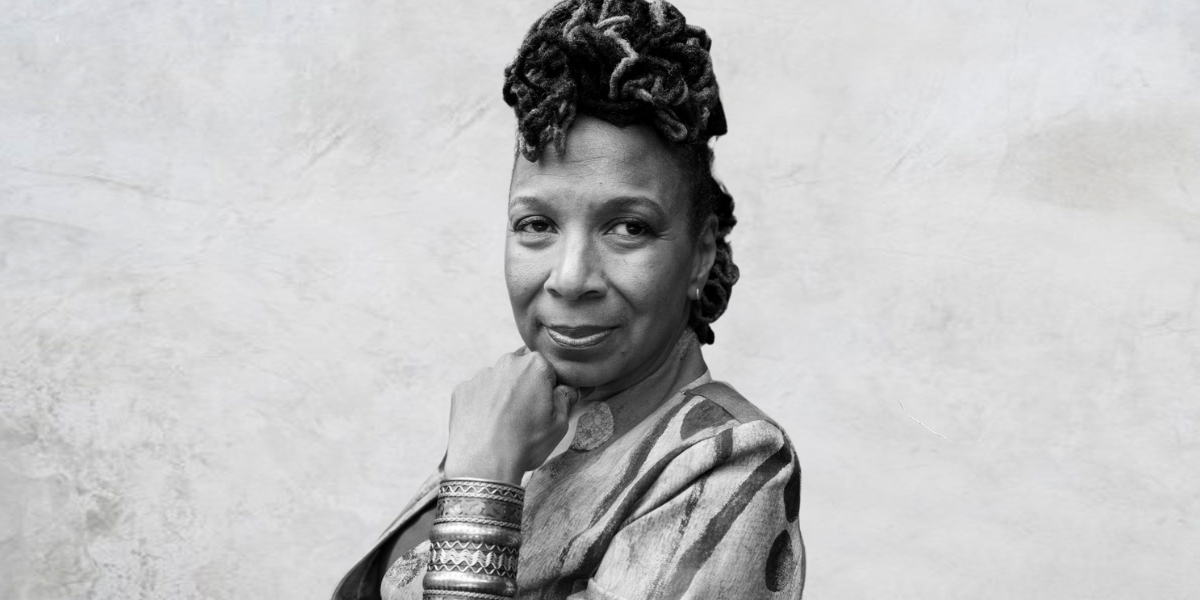
Kimberlé Crenshaw (1959-present) is one of the most influential feminist philosophers of our time. She is known for her advocacy for American civil rights, being a leading scholar of critical race theory, and pioneering what we now know as the third wave of feminism.
Crenshaw was born in Ohio, US in 1959. As a child, she grew up through the US civil rights and second wave feminist movements, both which occured throughout the 1960s and 70s. This time of revolutionary movements towards equality influenced how Crenshaw was raised.
“My mom was a little bit more radical and confrontational and my father was a little bit more Martin Luther King and ‘find common ground’. Which is probably why there are strains of both of those in my work.”
In 1984, Crenshaw graduated from Harvard Law School. At this time, there was only one woman and one Black professor of the 60 who were tenured. She is now a tenured professor at the University of California, Los Angeles (UCLA) and splits her time there with the Columbia School of Law in NYC.
Where do race and gender meet?
“I argue that Black women are sometimes excluded from feminist theory and antiracist policy discourse because both are predicated on a discrete set of experiences that often does not accurately reflect the interaction of race and gender.”
Crenshaw is most notable for coining the term “intersectionality,” which refers to the idea that when someone has multiple identities, it causes them to experience different and compounded forms of oppression. Rather than oppression being additive across multiple identities, intersectionality tells us that the experience of oppression will be multiplied. For example, a Black woman will experience discrimination because she is Black, because she is a woman, and also because she is a Black woman – which is a different kind of discrimination altogether.
“Because the intersectional experience is greater than the sum of racism and sexism, any analysis that does not take intersectionality into account cannot sufficiently address the particular manner in which Black women are subordinated.”
In the academic world, the term intersectionality debuted in Crenshaw’s 1989 paper Demarginalizing the Intersection of Race and Sex: A Black Feminist Critique of Antidiscrimination Doctrine, Feminist Theory and Antiracist Politics. Many scholars would say that the publishing of this paper catalysed the third wave of feminism, which is characterised by advocates demanding a more wholistic type of equality for people of all genders, races, socioeconomic backgrounds, abilities, ages, and in all countries.
Two years after the paper was published, Crenshaw assisted Professor Anita Hill’s legal team during Judge Clarence Thomas’s confirmation hearing to the US Supreme Court in October of 1991. In an interview with the Guardian, she reflects that the experience cemented the need for an intersectional theory of social justice. It was clear that “race was playing a role in making some women vulnerable to heightened patterns of sexual abuse [a]nd … anti-racism wasn’t very good at dealing with that issue.”
Intersectionality finally appeared in the Oxford English Dictionary in 2015, where it is defined as “the interconnected nature of social categorizations such as race, class, and gender, regarded as creating overlapping and interdependent systems of discrimination or disadvantage.”
A founder of critical race theory
“You can’t fix a problem you can’t name.”
Crenshaw has also spent a large part of her academic career developing and writing about what is now known as critical race theory. In its purest form, critical race theory is a 40-year-old academic framework that concerns itself with defining and understanding the plethora of ways that race impacts American institutions and systems, and how American institutions and culture uphold racist ideals. Crenshaw’s own definition, however, is more of a verb than a noun. For her, critical race theory is “a way of seeing, attending to, accounting for, tracing and analysing the ways that race is produced.”
One of the big cultural issues in the 21st century in America has been whether to teach critical race theory in public schools across the country. Parents and politicians across America have fought to remove what they think critical race theory is out of children’s education. They have argued that CRT is racist and teaches kids to “hate their own country.” Crenshaw now says she sees her work “as talking back against those who would normalise and neutralise intolerable conditions in our lives.”
Where to now?
Crenshaw continues to educate and inspire the next generation by teaching classes in Advanced Critical Race Theory, Civil Rights, Intersectional Perspectives on Race, Gender and the Criminalization of Women & Girls, and Race, Law and Representation at UCLA. At Columbia, she continues to work on the AAPF and through the forum, co-authored a paper in 2015 with Andrea Richie entitled Say Her Name: Resisting Police Brutality Against Black Women.
She regularly writes for a number of publications and provides commentary for the new outlets MSNBC and NPR. Crenshaw also hosts her own podcast Intersectionality Matters.
Ethics in your inbox.
Get the latest inspiration, intelligence, events & more.
By signing up you agree to our privacy policy
You might be interested in…
Opinion + Analysis
Business + Leadership, Politics + Human Rights
Survivors are talking, but what’s changing?
Explainer
Business + Leadership, Politics + Human Rights, Relationships
Ethics Explainer: Power
Opinion + Analysis
Health + Wellbeing, Politics + Human Rights
Constructing an ethical healthcare system
Opinion + Analysis
Politics + Human Rights, Science + Technology
Who’s to blame for Facebook’s news ban?
BY The Ethics Centre
The Ethics Centre is a not-for-profit organisation developing innovative programs, services and experiences, designed to bring ethics to the centre of professional and personal life.
Ethics Explainer: Critical Race Theory

Ethics Explainer: Critical Race Theory
ExplainerPolitics + Human RightsRelationships
BY The Ethics Centre 12 SEP 2022
Critical Race Theory (CRT) seeks to explain the multitude of ways that race and racism have become embedded in modern societies. The core idea is that we need to look beyond individual acts of racism and make structural changes to prevent and remedy racial discrimination.
History
Despite debates about Critical Race Theory hitting the headlines relatively recently, the theory has been around for over 30 years. It was originally developed in the 1980s by Derrick Bell, a prominent civil rights activist and legal scholar. Bell argued that racial discrimination didn’t just occur because of individual prejudices but also because of systemic forces, including discriminatory laws, regulations and institutional biases in education, welfare and healthcare.
During the 1950s and 1960s in America, there were many legal changes that moved the country towards racial equality. Some of the most significant legal changes include the Supreme Court’s decision in Brown v. Board of Education, which explicitly banned racial apartheid in American schools, the Civil Rights Act of 1964 and the Voting Rights Act of 1965.
These rulings and laws formally criminalised segregation, legalised interracial marriage and reduced restrictions in access to the ballot box that had been commonplace in many parts of America since the 1870s. There was also a concerted effort across education and the media to combat racially discriminatory beliefs and attitudes.
However, legal scholars noticed that even in spite of these prominent efforts, racism persisted throughout the country. How could racial equality be legislated by the highest court in America, and yet racial discrimination still occur every day?
Overview
Critical race theory, often shortened to CRT, is an academic framework that was developed out of legal scholarship that wanted to explain how institutions like the law perpetuates racial discrimination. The theory evolved to have an additional focus on how to change structures and institutions to produce a more equitable world. Today, CRT is mostly confined to academia, and while some elements of CRT may inform parts of primary and secondary education, very few schools teach CRT in its full form.
Some of the foundational principles of CRT are:
- CRT asserts that race is socially constructed. This means that the social and behavioural differences we see between different racialised groups are products of the society that they live in, not something biological or “natural.”
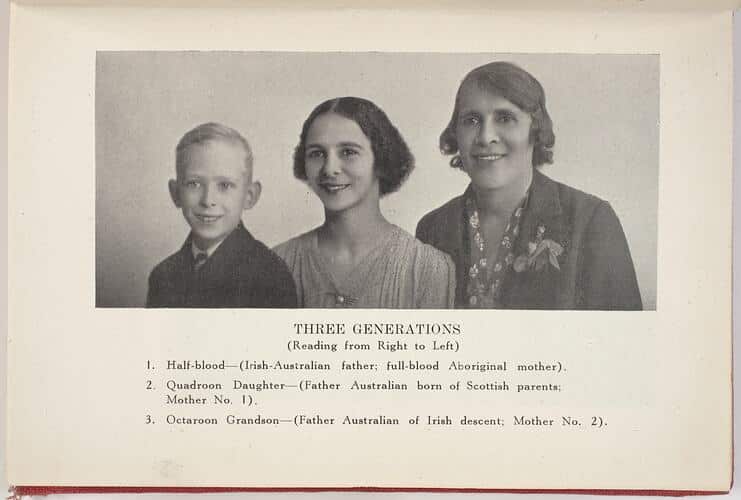
There is a long history of people using science to attempt to prove that there were significant social and psychological differences among people of different racial groups. They claimed these differences justified the poor treatment of people of different ‘inferior races’, or the ‘breeding out’ of certain races. This is how white Australians justified the atrocities committed in the Stolen Generations, such as the attempted ‘breeding out’ of Aboriginal people.
2. Racism is systemic and institutional. Imagine if everyone in the world magically erased all their racial biases. Racism would still exist, because there are systems and institutions that uphold racial discrimination, even if the people within them aren’t necessarily racist.
There are many examples of systemic and institutional racism around the world. They become evident when a system doesn’t have anything explicitly racist or discriminatory about it, but there are still differences in who benefits from that system. One example is the education system: it’s not explicitly racist, but students of different racial backgrounds have different educational outcomes and levels of attainment. In the US, this occurs because public schools are funded by both local and state governments, which means that children going to school in lower socioeconomic areas will be attending schools that receive less funding. Statistically, people of colour are more likely to live in lower socioeconomic areas of America. So, even though the education system isn’t explicitly racist (i.e., treating students of one racial background differently from students of a different racial background), their racial background still impacts their educational outcomes.
3. There is often more than one part of identity that can impact a person’s interaction with systems and institutions in society. Race is just one of many parts of identity that influences how a person will interact with the world. Different identities, including race, gender, sexuality, socioeconomic status, religion and ability, intersect with each other and compound. This is an idea known as “intersectionality.”
Most of the time, it’s not just one part of a person’s identity that is impacting their experiences in the world. Someone who is a Black woman will experience racism differently from a Black man, because gender will impact experience, just like race. A wealthy Chinese-Australian person will have a different experience living in Australia than a working class Chinese-Australian person. Ultimately, CRT tells us that we need to look at race in conjunction with other facets of identity that impact a person’s experience.
Critical Race Theory and racism in Australia
As Australians, it’s easy to point the finger at the US and think “well, at least we aren’t as bad as them.” However, this mentality of only focusing on the worst instances of racism means we often ignore the happenings closer to home. A 2021 survey conducted by the ABC found that 76% of Australians from a non-European background reported experiencing racial discrimination. One-third of all Australians have experienced racism in the workplace and two-thirds of students from non-Anglo backgrounds have experienced racism in school.
In addition to frequent instances of racism, Australia’s history is fraught with racism that is predominantly left out of high school history textbooks. From our early colonial history to racial discrimination during the gold rush in the 1850s to anti-immigration rhetoric today, we don’t need to look far for examples of racial discrimination. A little known part of Australian history is that non-British immigrants from 1901 until the 1960s were told that if they moved to Australia, they had to shed their languages and culture.
Even though CRT originates in the US, it is a useful framework for encouraging a closer analysis of Australia’s racist history and how this has caused the imbalances and inequalities we see today. And once we understand the systemic and institutional forces that promote or sustain racial injustice, we can take measures to correct them to produce more equitable outcomes for all.
If you want to learn more about how race has impacted the world today, here are some good places to start:
- Nell Painter’s Soul Murder and Slavery – her work has focused on the generational psychological impact of the trauma of slavery. Here is an interview where Painter talks a little bit about her work.
- Nikole Hannah-Jones’ 1619 Project, with the New York Times – you can listen to the podcast on Spotify, which has six great episodes on some of the less reported ways that slavery has impacted the functioning of US society.
- Dear White People – a Netflix show that deals with some of the complications of race on a US college campus.
- Ladies in Black – a movie about Sydney c. 1950s, shows many instances of the casual racism towards refugees and immigrants from Europe.
For a deeper dive on Critical Race Theory, Claire G. Coleman presents Words Are Weapons and Sisonke Msimang and Stan Grant present Precious White Lives as Festival of Dangerous Ideas 2022. Tickets on sale now.
Ethics in your inbox.
Get the latest inspiration, intelligence, events & more.
By signing up you agree to our privacy policy
You might be interested in…
Opinion + Analysis
Business + Leadership, Relationships
Beyond the headlines of the Westpac breaches
Opinion + Analysis
Relationships, Society + Culture
Greer has the right to speak, but she also has something worth listening to
Opinion + Analysis
Politics + Human Rights, Relationships
Intimate relationships matter: The need for a fairer family migration system in Australia
Opinion + Analysis
Health + Wellbeing, Relationships
Your child might die: the right to defy doctors orders
BY The Ethics Centre
The Ethics Centre is a not-for-profit organisation developing innovative programs, services and experiences, designed to bring ethics to the centre of professional and personal life.
Why fairness is integral to tax policy

Why fairness is integral to tax policy
Opinion + AnalysisBusiness + LeadershipPolitics + Human Rights
BY Joshua Pearl 22 AUG 2022
Pick up a first-year undergraduate economics textbook on tax and you’ll likely be apprised that there are three desired features of a tax policy: simplicity, efficiency and fairness.
The importance of the first two are somewhat obvious. Simplicity, because taxpayers need to understand how to comply with the tax system. Efficiency, because if people can easily change their behaviour to avoid paying tax, there won’t be much revenue to fund government expenditure. But fairness, the third desired feature of tax policy, is more nebulous.
Tax fairness is important not merely because economists tell us so. Rather, Australia needs to consider tax fairness for reasons such as: ensuring the continued political legitimacy of the Australian governments; because tax inherently deals with issues of inequality; and for the very practical reason of helping us deliver tax system reform.
In a liberal country such as Australia, a well-accepted norm is that restrictions on individual freedom must be justified. And in liberal philosophy, the dominate way to justify government restrictions is by considering a “public reason” test, well-articulated by influential twentieth century philosopher John Rawls’ liberal principle of legitimacy:
“Political power is legitimate only when it is exercised in accordance with a constitution (written or unwritten) the essentials of which all citizens, as reasonable and rational, can endorse in the light of their common human reason”.
Restrictions that are arbitrary, unfair, exploitative or focus on benefitting a few at the expense of the many, undermine political legitimacy because they cannot be justified. Prohibiting the Nazi swastika might be justifiable because people have a right not to be vilified or feel physically threatened. But prohibiting tattoos or facial piercings, dress wear, beach outfits or more sinisterly, citizenship based on skin colour, because they offend certain sensibilities, are not legitimate forms of government coercion because they cannot be reasonably justified using the public reason test.
Rawls considered the public reason test would apply to areas in the public domain relating to judges, government officials, and politicians. And the public reason test applies to taxation as much as any other act of government coercion. Taxation, the compulsory, unrequited payment to government, is quite literally nothing, if it is not coercive. In Australia we pay around $600bn in tax each year, over $40,000 per working person.
If the tax system is unfair, it cannot be justified. And taxation that is unjustified etches away at the political legitimacy of the Australian government and, in turn, Australian democracy.
The two primary functions of tax are:
1. to fund public goods such as military, transport, education, police and the judiciary
2. to redistribute wealth and income, through policies such as pension payments, unemployment payments, childcare and paid parental leave. Therefore, because tax impacts wealth and income distribution, as well as economic inequality, the tax system has inherent fairness implications.
Wealth and income distribution, the second function of tax, determines economic inequality, an inherent fairness issue. And to determine the required tax level requires consideration of the level of wealth and income inequality we consider fair. It might be said this issue is more relevant today than in other times in our recent history; Australian inequality measures have increased steadily since the 1980s. But even if we consider current wealth and income inequality levels as acceptable, presumably there is a limit. It is unlikely that Australia would still be considered a fair country if we were a nation of 20 billionaires and twenty million paupers.
One might be tempted to try and decouple tax issues from fairness issues by claiming Australia and our tax system is fair so long as we have equality of opportunity; instead of worrying about wealth inequality and tax, we should focus on realising Australian cultural values such as a “fair go”, a value synonymous (according to the citizenship tests new citizens take) with “equality of opportunity”.
However, a “fair go” isn’t free. For a rich child and a poor child to have the same opportunities with respect to education, learning and a successful career, we require tax. For equality of opportunity to exist, the rich parent needs to contribute more tax to fund our education institutions than what the poor parent can afford. Here, issues of tax and fairness are bound.
A less philosophical reason as to why it’s important for Australia to consider tax system fairness relates to tax reform. The consensus among economists is the Australian tax system is uncompetitive, inefficient, too complex and out of date. And they may have a point.
Australia hasn’t had meaningful tax reform for decades and is out of step with international best practice. The Federal Government deficit is large and growing, thanks in part to the former government’s COVID-19 splurges (some necessary, some arguably less so). And Australian government debt is forecast to reach a trillion dollars in the coming years, a level that may limit or preclude policy responses to future wars, pandemics, financial crises or property market crashes (and the implications of muted policy options is not merely no pink batts or no JobKeeper in time of catastrophe, but no jobs, high unemployment and potential social unrest).
Yet despite the arguments of a host of economic experts, such as ANU’s Professor Robert Breunig the former Federal Treasury head Dr. Ken Henry, OECD and IMF mandarins, to name but a few, the Australian tax system remains as it is. While tax reform by its nature is challenging (there is always a loser – someone will be paying more), it’s hard not to think the focus on tax efficiency, tax competitiveness, tax complexity and so on and so forth, has failed to create the “burning platform” needed to drive policy change. A greater focus on the fairness of the Australian tax system may be what is required to buttress the valid but sometimes technical economic arguments for Australian tax system reform.
Considering fairness of the tax system is important for political legitimacy, inequality and practical reasons. A tax system that is fair strengthens our democracy by ensuring taxation remains justifiable. Tax fairness helps us realise Australian cultural values such as equality of opportunity. And a greater focus on tax fairness might help us undertake meaningful tax reform, delivering a tax system that is simple, efficient and fair.
Ethics in your inbox.
Get the latest inspiration, intelligence, events & more.
By signing up you agree to our privacy policy
You might be interested in…
Big thinker
Politics + Human Rights, Relationships
Big Thinker: Mary Wollstonecraft
Opinion + Analysis
Society + Culture, Business + Leadership
AI might pose a risk to humanity, but it could also transform it
Opinion + Analysis
Business + Leadership
Why Australian billionaires must think “less about the size of their yard” and more about philanthropy
Explainer
Politics + Human Rights
Ethics Explainer: Rights and Responsibilities
BY Joshua Pearl
Joshua Pearl is the head of Energy Transition at Iberdrola Australia. Josh has previously worked in government and political and corporate advisory. Josh studied economics and finance at the University of New South Wales and philosophy and economics at the London School of Economics.
Ethics Explainer: Gender

Ethics Explainer: Gender
ExplainerPolitics + Human RightsRelationships
BY The Ethics Centre 10 AUG 2022
Gender is a complex social concept that broadly refers to characteristics, like roles, behaviours and norms, associated with masculinity and femininity.
Historically, gender in Western cultures has been a simple thing to define because it was seen as an extension of biological sex: ‘women’ were human females and ‘men’ were human males, where female and male were understood as biological categories.
This was due to a view that espouses the idea that biology (i.e., sex) predetermines or limits a host of social, psychological and behavioural traits that are inherently different between men and women, a view often referred to as biological determinism. This is where we get stereotypes like “men are rational and unemotional” and “women are passive and caring”.
While most people reject biologically deterministic views today, most still don’t distinguish between sex and gender. However, the conversation is slowly beginning to shift as a result of decades of feminist literature.
Additionally, it’s worth noting that outside of Western traditions, gender has been a much more fluid and complex concept for thousands of years. Hundreds of traditional cultures around the world have conceptions of gender that extend beyond the binary of men and women.
Feminist Gender Theory
Feminism has had a long history of challenging assumptions about gender, especially since the late twentieth century. Alongside some psychologists at the time, feminists began differentiating between sex and gender to argue that many of the differences between men and women that people took to be intrinsic were really the result of social and cultural conditioning.
Prior to this, sex and gender were thought be essentially the same thing. This encouraged people to confer biological differences onto social and cultural expectations. Feminists argue that this is a self-fulfilling misconception that produces oppression in many different ways; for example, socially and culturally limiting attitudes that prevent women from engaging in “masculine” activities and vice versa.
Really, they say, gender is social and sex is biological. Philosopher Simone de Beauvoir famously said: “One is not born, but rather becomes, a woman”.
Gender being social means that it’s a concept that is constructed and shaped by our perceptions of masculinity and femininity, and that it can vary between societies and cultures. Sex being biological means that it’s scientifically observable (though the idea of binary sex is also being questioned given there are over 100 million intersex people all over the world).
Philosophers like Simone de Beauvoir argued that gendered assumptions and expectations were so deeply engrained in our lives that they began to appear biologically predetermined, which gave credence to the idea of women being subservient because they were biologically so.
“Social discrimination produces in women moral and intellectual effects so profound that they appear to be caused by nature.”
Gender and Identity
Gender being socially constructed means that it is mutable. With this increasingly mainstream understanding, people with more diverse gender identities than simply that which they were assigned at birth (cisgender) have been able to identify themselves in ways that more closely reflect their experiences and expressions.
For example, some people identify with a different gender than what they were assigned at birth based on their sex (transgender); some people don’t identify as either man or woman, and instead feel that they are somewhere in between, or that the binary conception of gender doesn’t fit their experience and identity at all (non-binary). In many non-western cultures, gender has never been a binary concept.
Unfortunately, with the inherently identity-based nature of gender, a host of ethical issues arise mostly in the form of discrimination.
Transgender people, for example, are often the target of discrimination. This can be in areas as simple as what bathrooms they use to more complicated areas like participation in elite sports. Notably, these examples of discrimination are almost always targeted at transfeminine people (those who identify as women after being assigned men at birth).
Additionally, there are ethical considerations that have to be taken into account when young people, particularly minors, make decisions about affirming their gender. Currently, it’s standard medical practice for people under 18 to be barred from making decisions about permanent medical procedures, though this still allows them to (with professional, medical guidance) take puberty blockers that help to mitigate extra dysphoria linked to undergoing puberty in a gender the person doesn’t identify with.
Gender stereotypes in general also have negatives effects on all genders. Genderqueer people are often the targets of violence and discrimination. Women have historically been and are still oppressed in many ways because of systemic gender biases, like being discouraged to work in certain fields, being paid less for similar work or being harassed in various areas of their lives. Men also face harmful effects of rigid gender norms that often result in risk-taking behaviour, internalisation of mental health struggles, and encouraging violent or anti-social behaviour.
The Future of Gender
This has been an overview of the most common views on gender. However, there are also many variations on the traditional feminist view that other feminists argue are more accurate depictions of reality.
bell hooks was known to criticise some variations of gender that revolved around sexuality because they did not properly account for the way that class, race and socio-economic status changed the way that a woman was viewed and expected to behave. For example, many views of gender are from the perspective of white, western women and so fail to represent women in more marginalised circumstances.
Along similar lines, Judith Butler criticises the very idea of grouping people into genders, arguing that it is and will always be inherently normative and hence exclusionary. For Butler, gender is not simply about identity, it’s primarily about equality and justice.
Even some earlier gender theorists like Gayle Rubin argue for the eventual abolishment of gender from society, in which people are free to express themselves in whatever individual way they desire, free from any norms or expectations based on their biology and subsequent socialisation.
“The dream I find most compelling is one of an androgynous and genderless (though not sexless) society, in which one’s sexual anatomy is irrelevant to who one is, what one does, and with whom one makes love.”
Gender is currently a very active research and debate area, not only in philosophy, but also in sociology, politics and LGBTQI+ education. While theories about identity often result in conflict due to its inherently personal nature, it’s promising to see such a clear area where work by philosophers has significantly influenced public discourse with profound effects on many people’s lives.
For a deeper dive on gender, Alok Vaid-Menon presents Beyond the Gender Binary as part of Festival of Dangerous Ideas 2022. Tickets on sale now.
Ethics in your inbox.
Get the latest inspiration, intelligence, events & more.
By signing up you agree to our privacy policy
You might be interested in…
Opinion + Analysis
Relationships, Science + Technology
To see no longer means to believe: The harms and benefits of deepfake
Opinion + Analysis
Relationships
The historical struggle at the heart of Hanukkah
Opinion + Analysis
Relationships
Will I, won’t I? How to sort out a large inheritance
Big thinker
Politics + Human Rights, Society + Culture
Big Thinker: Slavoj Žižek
BY The Ethics Centre
The Ethics Centre is a not-for-profit organisation developing innovative programs, services and experiences, designed to bring ethics to the centre of professional and personal life.
Ethics Explainer: Social philosophy

Ethics Explainer: Social philosophy
ExplainerPolitics + Human RightsRelationships
BY The Ethics Centre 7 JUL 2022
Social philosophy is concerned with anything and everything about society and the people who live in it.
What’s the difference between a house and a cave, or a garden and a field of wildflowers? There are some things that are built by people, such as houses and gardens, that wouldn’t exist without human intervention. Similarly, there are some things that are natural, such as caves and fields of wildflowers, that would continue to exist as they were without humans. However, there is a grey area in the middle that social philosophers study, including topics like gender, race, ethics, law, politics, and relationships. Social philosophers spend their time parsing what parts of the world are constructed by humans and what parts are natural.
We can see the beginnings of the philosophical debate of social versus natural through Aristotle’s and Plato’s justifications for slavery. Aristotle believed that some people were incapable of being their own masters, and this was a natural difference between a slave and a free person. Plato, on the other hand, believed that anyone who was inferior to the Greeks could be enslaved, a difference that was made possible by the existence of Greek society.
Through the Middle Ages, attention turned to questioning religion and the divine right of monarchs. During this era, it was believed that monarchs were given their authority by God, which was why they had so much more power than the average person. British philosopher John Locke is well known for arguing that every man was created equally, and that everyone had an equal right to life, liberty, and pursuit of property. His conclusion was that these fundamental rights were natural to everyone, which contradicted the social norms that gave almost unlimited power to monarchs. The idea that a monarch naturally had the same fundamental rights as someone who worked the land would have to fundamentally change the structure of society.
During the 19th century, some philosophers began to question social categories and where they came from. Many people at the time held that social classes, or groups of people of the same socioeconomic status, were a result of biological, or natural, differences between people. Karl Marx, known for his 1848 pamphlet The Communist Manifesto, proposed his own theory about social classes. He argued that these socioeconomic differences that formed social differences were a result of the type of work that someone did and therefore social classes were socially, not biologically, constructed.
Today social philosophers are concerned with a variety of questions, including questions about race, gender, social change, and institutions that contribute to inequality. One example of a social philosopher who studies gender and race is Sally Haslanger. She has spent her time asking what are the defining characteristics of gender and race, and where these characteristics come from. In other cases, social philosophy is blended with cognitive psychology and behavioural studies, asking which of our behaviours are influenced by the society we live in and which behaviours are “natural,” or a product of our biology.
Social philosophy and ethics
Many of the questions social philosophers are concerned with are intertwined with ethics. Part of living in a society requires an (often unwritten) ethical code of conduct that ensures everything functions smoothly.
Thomas Hobbes’ social contract theory spells out the connection between a society and ethics. Hobbes believed that instead of ethics being something that existed naturally, a code of ethics and morality would arise when a group of free, self-interested, and rational people lived together in a society. Ethics would arise because people would find that better things could come from working together and trusting each other than would arise from doing everything on their own.
Today, much of how we act is determined by the societies we live in. The kinds of clothes we wear, the media we interact with, and how we talk to each other change depending on the norms of our society. This can complicate ethics: should we change our ethical code when we move to a different society with different norms? For example, one culture may say that it’s morally acceptable to eat meat, while a different culture may not. Should a person have to change the way they act moving from the meat-eating culture to the non-meat-eating culture? Moral relativists would say it is possible for both cultures to be morally right, and that we should act accordingly depending on which culture we are interacting with.
A significant reason that social philosophy is still such a nebulous field is that everyone has different life experiences and interacts with society differently. Additionally, different people feel like they owe different levels of commitment to the people around them. Ultimately, it’s a serious challenge for philosophers to come up with social theories that resonate with everyone the theory is supposed to include.
Ethics in your inbox.
Get the latest inspiration, intelligence, events & more.
By signing up you agree to our privacy policy
You might be interested in…
Opinion + Analysis
Business + Leadership, Relationships
There’s no good reason to keep women off the front lines
Explainer
Politics + Human Rights, Relationships
Ethics Explainer: Gender
Opinion + Analysis
Health + Wellbeing, Relationships
Confirmation bias: ignoring the facts we don’t fancy
Big thinker
Relationships
Big Thinker: Martha Nussbaum
BY The Ethics Centre
The Ethics Centre is a not-for-profit organisation developing innovative programs, services and experiences, designed to bring ethics to the centre of professional and personal life.
(Roe)ing backwards: A seismic shift in women's rights

(Roe)ing backwards: A seismic shift in women’s rights
Opinion + AnalysisPolitics + Human Rights
BY Mehhma Malhi 4 JUL 2022
Standing in the middle of Washington Square Park in downtown Manhattan, on the 24th of June, I propelled a sign skyward that read: Abortion Is Healthcare. There were thousands of other slogans, on posters and placards, all being hoisted repeatedly by protesters equally aggrieved by the overturning of Roe v. Wade.
Earlier that same day, at 10 AM, the United States Supreme Court had overturned the ruling of the original monumental case. Since 1973, Roe v. Wade had protected the constitutional right to privacy for nearly half a century – ensuring that every woman in the US could obtain an abortion without fear of criminal penalty. But the repeal of this landmark case has unfortunately handed the regulation of abortion back to each individual state. And now, approximately 20 US states are set to once again criminalise or entirely outlaw access to abortions, despite two-thirds of its citizens being in favour of abortion.
So how will this loss of privacy constrain women’s autonomy?
The right to an abortion protects women from bodily harm, insecure financial circumstances, and emotional grief. The medical procedure allows a woman to maintain bodily autonomy by affording the choice to decide when, or if, she ever wants a child. Abortion acknowledges a woman’s right to live life as she intends. Banning abortion severely compromises that choice. Further, it does not reduce abortion rates but instead forces women to seek abortion elsewhere or by unsafe means. In 2020, over 900 000 legal abortions were conducted in the United States by professionals or by mothers using medication prescribed by physicians.
Banning abortion places a hefty burden on women, suppressing their autonomy.
The Legal Disparity Pre-Roe
Before Roe, women in the United States had minimal access to legal abortions, which were usually only available to high-income families. Illegal abortions were unsafe and in 1930 were the cause of nearly 20% of maternal deaths. This is because many of them relied on self-induced abortions or asked community members for assistance. Given the lack of medical experience, botched procedures and infections were rife.
Pre-Roe abortion bans harmed and further disadvantaged predominantly low-income women and women of colour. In 1970 some states allowed abortion. However, given the lack of national support, women were expected to travel long distances for many hours, which placed their health at significant risk. Once again, this limited access created unequal outcomes by only providing access to select women with means to travel and financial security.
Post-Roe Injustice
Post-Roe, the outcomes appear just as grim. In a digital landscape, technology brings benefits but also comes at a cost, introducing new vulnerabilities and concerns for women. While technology equips women seeking abortion to find clinics, book appointments, and help with travel interstate, it can also amplify the persecution of women when abortion is criminalised. For example, in 2017, Mississippi prosecutors used a woman’s internet search history to prove that she had looked up where to find abortion pills before she lost her foetus. And currently, since the recent ruling, clinics are scrambling to encrypt their data, while others are resorting to using paper to protect their patients’ sensitive information from being tracked or leaked
Unfortunately, there are also concerns that data could be used from period tracking apps and location services to further restrict women from accessing abortions. In previous years, prosecutors and law enforcement have wrongfully convicted women for illegal abortions by searching their online history and text messages with friends. Now that abortion is criminalised in some states, there are worries of increased access to private information that could be used against women in court: specifically the use of third-party apps that sell information which would further isolate women and reduce their ability to receive competent care, which in some states could be accessed without their consent.
The United States Department of Health and Human Services, known as HHS, released a statement on June 29th about protecting patient privacy for reproductive health. It states that “disclosures to law enforcement officials, are permitted only in narrow circumstances” and that in most cases, the Health Insurance and Portability and Accountability Act (HIPAA), commonly known as a privacy Act, “does not protect the privacy or security of individuals’ health information” when stored on phones. The guidance continues by suggesting how women can best protect their online information. For women to defend themselves, they must take extra precautions such as using privacy browsers, turning off locations, and using different emails.
These additional measures are troubling as they stipulate how women receive care. Placing the onus on women, the risk of information leaking limits access to resources and further restricts the privacy and autonomy of pregnant women as it creates fear of constant surveillance.
Further, it places people seeking care at a significant disadvantage if they do not know what information is protected and what is not.
Post-Roe, the medical landscape will also begin to shift. Abortion care is not uncommon in other procedures conducted by obstetricians and gynaecologists (OB-GYNs). Abortion care can overlap with miscarriage aftercare and ectopic pregnancies, creating murky circumstances for physicians and delaying care for patients as they wait for legal advice and opinion. In other cases, abortion care is necessary when pregnant women have cancer and need to terminate the pregnancy to continue with chemotherapy.
By restricting abortions, many physicians will be unable to provide adequate care and fulfil their duty to patients as they will be restricted by governing laws which will hinder further practice if persecuted. Any delay in receiving an abortion is an act of maleficence, as the windows to receive abortions grow increasingly slim and the restrictions grow tighter, the process inhibits providers from treating women seeking an abortion which obstructs beneficent care. As a result, many women will lose their lives from preventable and treatable causes.
Criminalising abortion will warp access and create unnavigable procedural labyrinths that will change the digital and medical landscape. Post-Roe United States will continue to breed fear and control over women’s lives. Criminalising abortion will isolate women from their communities and obstruct them from receiving competent medical care and treatment. Banning abortions will place an undue burden on women and will unfairly jeopardise their health and right to access care.
Ethics in your inbox.
Get the latest inspiration, intelligence, events & more.
By signing up you agree to our privacy policy
You might be interested in…
Opinion + Analysis
Health + Wellbeing, Politics + Human Rights, Relationships
CoronaVirus reveals our sinophobic underbelly
Opinion + Analysis
Politics + Human Rights
A note on Anti-Semitism
Opinion + Analysis
Politics + Human Rights
Israel or Palestine: Do you have to pick a side?
Opinion + Analysis
Politics + Human Rights, Relationships
